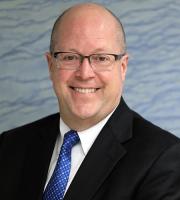Retirement Savings Tips for Empty Nesters
Make retirement savings a priority once your children leave home
By R. Todd Holden, Financial Advisor
After years of raising children and the expense that comes along with this, parents have an opportunity to adjust their financial focus and increase their retirement savings when their children leave home. However, a recent study by the Center for Retirement Research at Boston College showed that for many, this is not happening. The study found that many empty nesters — who now have fewer expenses related to children — haven’t saved more for retirement. One observation of the study is that these parents work fewer hours, thus earning less, which negatively impacts savings. There may be other reasons why empty nesters miss out on retirement savings, such as:
- Continuing to financially support children into adulthood
- Paying for their children’s higher education because they haven’t saved for it
- Deciding to pay down debt that has accumulated over the years
- Splurging with any extra money they have instead of adding it to their retirement account
No matter what the situation, the message is that empty nesters — given the typical time horizon until retirement — need to make saving for retirement a priority once their children are on their own. It’s not always easy, but here are some tips to help make it possible:
- Start encouraging children to seek financial independence and reduce what you pay for them as early as possible once they leave home. Establish time frames for them to pick up certain expenses, such as cell phone bills, gas or dining out.
- Avoid reducing your income until your children are sufficiently financially independent.
- Consider downsizing your home to reduce your cost of living and save more. Do you really need the extra space now that your child or children no longer live with you? Or, instead of moving, maybe you now have the space to rent and earn extra income?
- Reevaluate your life insurance needs. For example, if you have the savings to support your child through college and your spouse or partner now earns enough to cover the household bills, perhaps you no longer need a substantial life insurance policy?
- Empty nesters over 50 have the opportunity to make catch-up contributions to their retirement savings. Try to do this each year before you retire.
- If your children are still full-time students, you can reduce taxes by claiming them as dependents on your tax return up to age 24.
There are numerous strategies for empty nesters to build their retirement nest egg before their earning years end. Working with a qualified financial advisor can help you maximize your retirement savings once your children fly the coop. If you need assistance, please contact me at rtholden@nwfllc.com or visit my website at rtholden@nwfllc.com.




